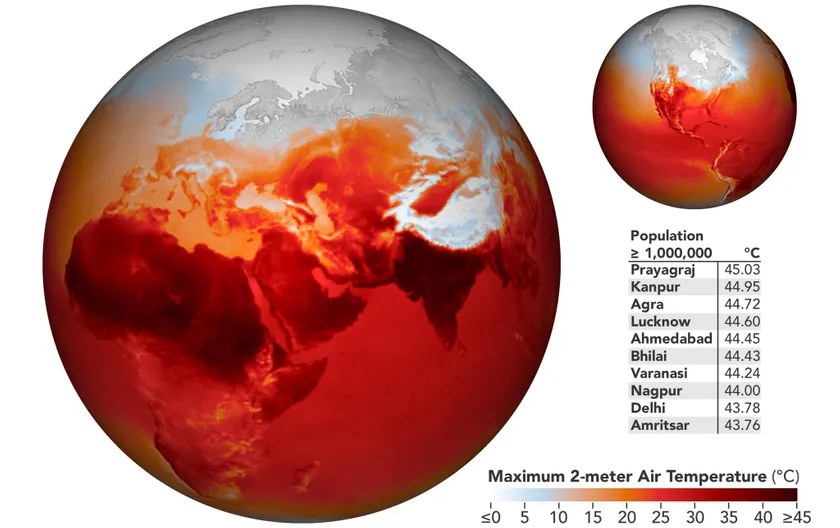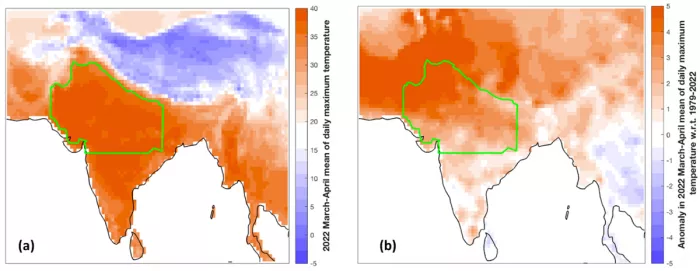Since the beginning of March this year, most parts of India and Pakistan have been in extremely hot weather The world weather attribution Organization (WWA) released the attribution analysis of the heat wave at 4 a.m. Beijing time on the 24th, pointing out that climate change has increased the possibility of this heat wave by 30 times

March this year was the hottest year-on-year in India since meteorological records were recorded 122 years ago, and Pakistan also experienced record breaking high temperatures. Into April, the heat wave continued to intensify. India and Pakistan were also extremely dry in March, with rainfall reduced by 71% and 62% respectively. At least 90 people died as a result of the heat wave, and the death toll is likely to increase further with more reports.
"High temperatures are common in India and Pakistan, but what's unusual this time is that they started early and lasted for a long time. In most parts of these two countries, they haven't been alleviated for weeks, and the cost of hundreds of millions of outdoor workers is particularly high. We know that this will happen more frequently as the temperature rises, and we need to be better prepared for it." Krishna achutarao, Professor of the center for atmospheric science at the Indian Institute of technology.

Globally, climate change has made heat waves more likely and intense. In order to quantify the impact of climate change on this round of sustained extreme high temperatures in India and Pakistan, scientists analyzed weather data and computer simulation results, and compared the climate with global warming of about 1.2 ° C since the end of the 19th century (corresponding to the real situation) with the past climate using peer-reviewed methodology.
This analysis focuses on the daily average maximum temperatures in northwest India and southeast Pakistan during the period from March to April, as these two regions are the most affected. The results show that such persistent heat waves as the two countries are experiencing are still rare, with a 1% probability of occurrence every year, but climate change has increased the probability of occurrence by about 30 times, which means that it will be extremely rare without the impact of human caused climate change.
"The heat wave caused by climate change has directly pushed up food prices. India planned to export a record amount of wheat this year to cope with the wheat shortage in Ukraine. Now, most of these exports have been cancelled due to climate change related events, pushing up global wheat prices and increasing global hunger." Robert vautard, a professor at the Pierre Simon Laplace Institute at the University of Paris, France.
If the global temperature continues to rise, similar extreme high temperature events will become more frequent. Scientists have found that if the global temperature rises to 2 degrees Celsius, such heat waves are expected to occur every five years.
"In countries with data, such as the UK, heat waves are the deadliest extreme weather events. At the same time, they are also the most strongly growing extreme type in a warming world. As long as greenhouse gas emissions continue, such events will become an increasingly common disaster." Friederike Otto, PhD, Grantham Institute, Imperial College London, UK.
Relevant research information:
https://mail.cstnet.cn/coremail/mbox-data/WWA+India+%26+Pakistan+heat+-+scientific+report.pdf?part=3&mode=download&mboxa=&mid=10%3A1tbiCgoPEFz4KnanqAAAsQ
Author: Feng lifeI source: China Science Daily